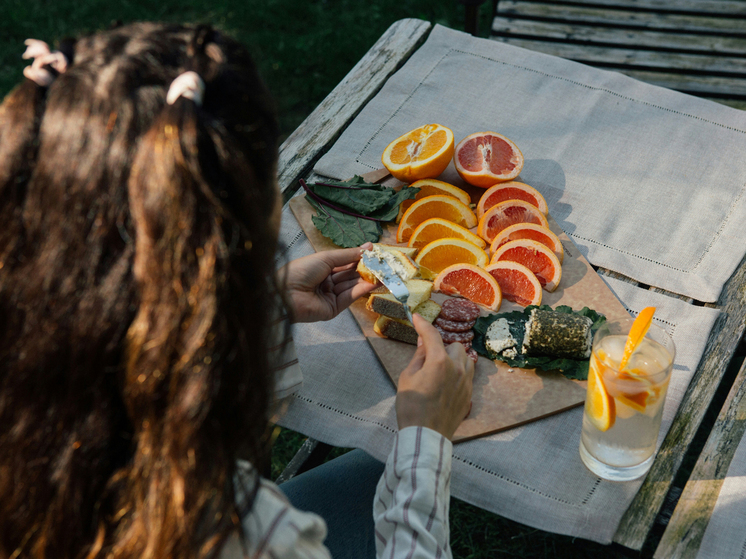Night owls and early risers consume different amounts of fresh food
Good health depends on a healthy diet, adequate exercise and sleep. A new study examines the relationship between fruit and vegetable consumption and sleep duration. The study, conducted by a team from the Finnish University of Helsinki, the National Institute of Health and Welfare and Turku University of Applied Sciences, was published in the journal Frontiers in Nutrition.
 Photo: unsplash.com
Photo: unsplash.com
Whoop previously sent a message from one of the athletes saying she ate vegetables 45 times over 90 days. The company suggested that such vegetable consumption appears to have a positive effect on REM sleep duration.
The optimal functioning of our hearts, blood vessels, muscles, cells, immune system, cognitive abilities and memory formation depend on regular, healthy sleep, and a 2019 study shows that sleep is important for repairing DNA damage that occurs while we are awake.< /p>
Restful sleep occurs during 3-5 night cycles, each of which lasts on average 90-120 minutes. During each cycle, we begin in the rapid eye movement (REM) stage of sleep, then move through two increasingly deeper periods of REM sleep before emerging from them. Our waking sleep becomes lighter and lighter until we reach the stage of REM sleep, after which a new cycle begins or we wake up. Adults should aim for 7 to 9 hours of sleep per night.
However, recent research shows that insomnia and short sleep duration are becoming more common among adults. Due to factors such as stress, poor diet intake and sedentary lifestyles, sleep deprivation is becoming a public health problem linked to cardiovascular disease, cognitive decline and increased all-cause mortality.
In the new study, researchers wanted to explore how sleep duration may influence fruit and vegetable consumption, and vice versa. They also explored the role that individual chronotypes (preferences for when to be active, such as morning or evening) may play in dietary choices and sleep duration.
The World Health Organization recommends people consume at least 400 grams of fruit and vegetables per day, while the latest Nordic Council of Ministers recommendations recommend increasing intake, recommending 500 to 800 grams of «vegetables, fruits and berries, with half of intake coming from vegetables.»
However, research shows that adults in many countries do not meet the minimum intake. According to new data, only 14 percent of Finnish men and 22 percent of Finnish women consume the recommended daily minimum of 500 grams of berries, fruits and vegetables.
The research team examined details from the 2017 National FinHealth Survey. A total of 5,043 adults aged 18 years and older provided detailed responses to a 134-item questionnaire about the composition and frequency of daily food intake over the past 12 months, and also reported their chronotypes and typical sleep duration over a 24-hour period.
From these responses, three sleep duration categories were identified: short, normal, and long. Most participants classified themselves as intermediate chronotypes, while 22.4 percent indicated they were morning types and 15.9 percent — for the evening.
The researchers included chronotypes as a primary variable, noting that many analyzes had not included them as potential factors affecting diet. However, some evidence suggests that they may influence eating behavior: “Evening chronotypes are often associated with unhealthy eating behaviors, including obesity.”
Among the most notable findings — Those who slept well had higher consumption of fruits and vegetables than those who slept little or long.
The study explains: “In the vegetable subgroup, there were significant differences in the consumption of green leafy vegetables, root vegetables, and fruits (eg, tomatoes, cucumbers) between heavy sleepers and light sleepers. Likewise, significant differences were again observed for both habitual sleepers and long sleepers for green leafy vegetables and fruits. However, other fresh and canned vegetables such as cabbage, mushrooms, onions, peas and beans did not show significant differences. In the fruit subgroups, there was a significant difference in the consumption of berries and other fresh and canned fruits between those who slept normally and those who slept briefly. Conversely, for those who slept normally and for a long time, the only significant difference was observed in the consumption of apples.
In general, a decrease in the consumption of certain fruits and vegetables is associated with sleep duration, according to experts. They recommend more specific work in this area to improve understanding.
«More research, particularly longitudinal research, is needed to better understand these relationships and their public health implications, especially in regions with similar population structures and food peculiarities with Finland,” — conclude Finnish experts.























































Свежие комментарии